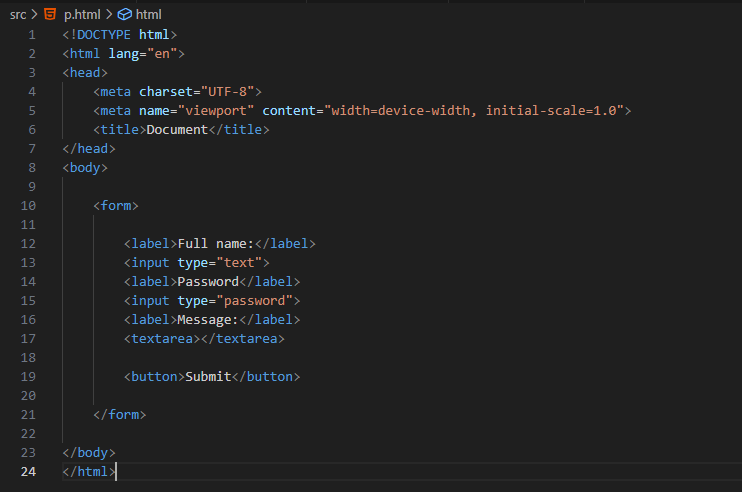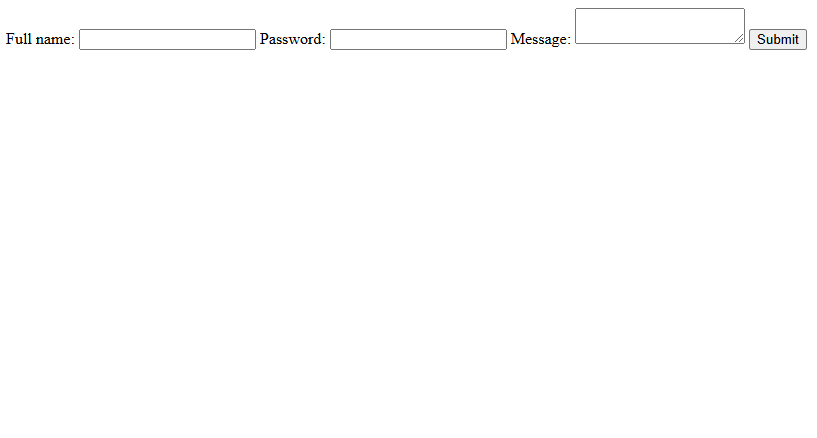Html List
Html List HTML lists allow web developers to group a set of related items in lists.This Html list element has Two children which are Unordered List and Ordered List.
Unordered List
Unordered List An unordered list starts with the < ul > tag. Each list item starts with the < li > tag. The list items will be marked with bullets (small black circles) by default.
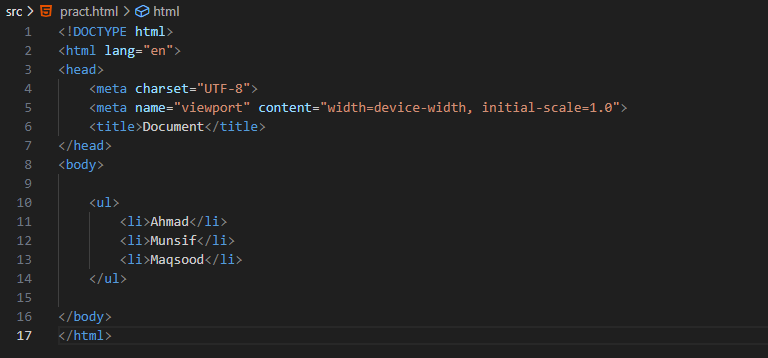
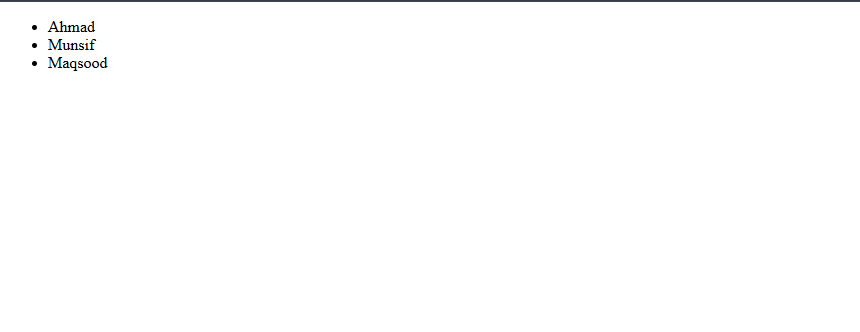
Ordered List
Ordered List An ordered list starts with the < ol > tag. Each list item starts with the < li > tag. The list items will be marked with numbers by default.
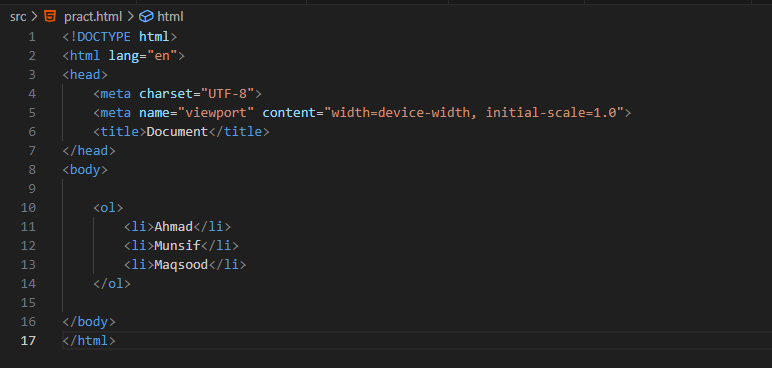
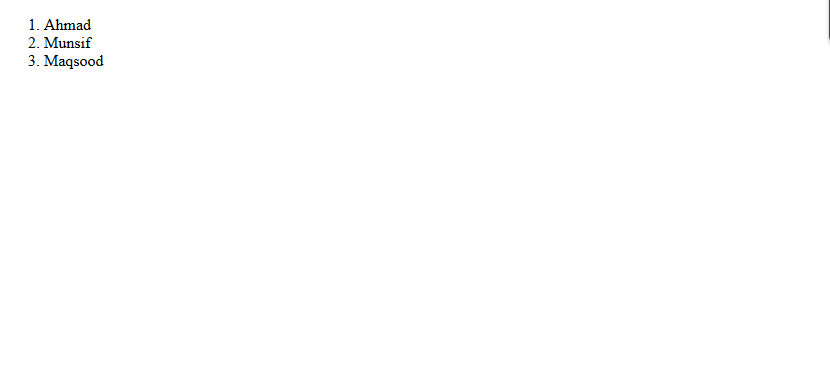
Html Table
Html Table HTML lists allows you to arrange data in row and columns.A table in HTML consists of table cells inside rows and columns. The table element consists of three children which are as follows:
- < tr >:It stands for table row
- < th >:It stands for table header
- < td >:It stands for table data
NOTE:
To add border to your table you are going to add the border attribute to your table element.
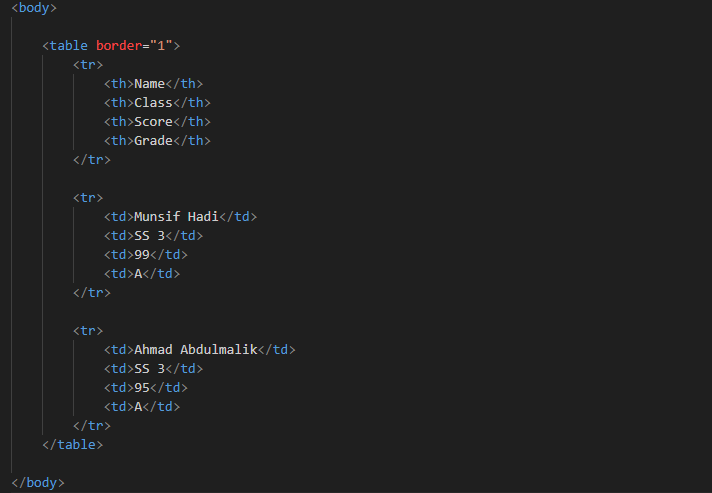
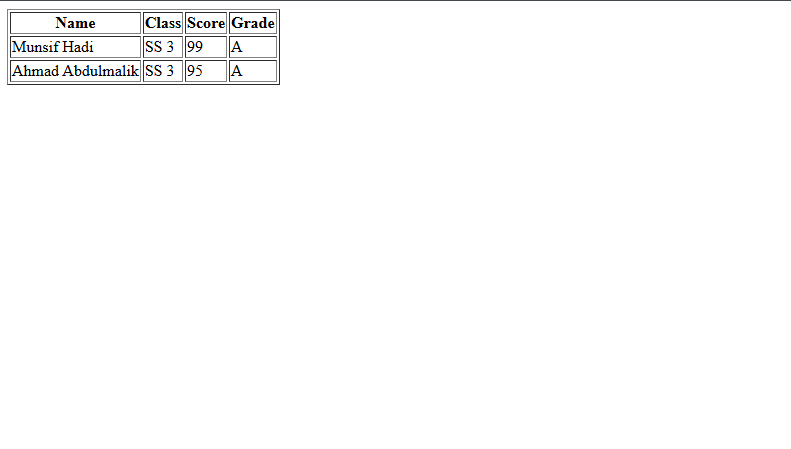
Html Div
Html Div The < div > element is used as a container to Html elements. Below is the example of Html element inside a < div > element
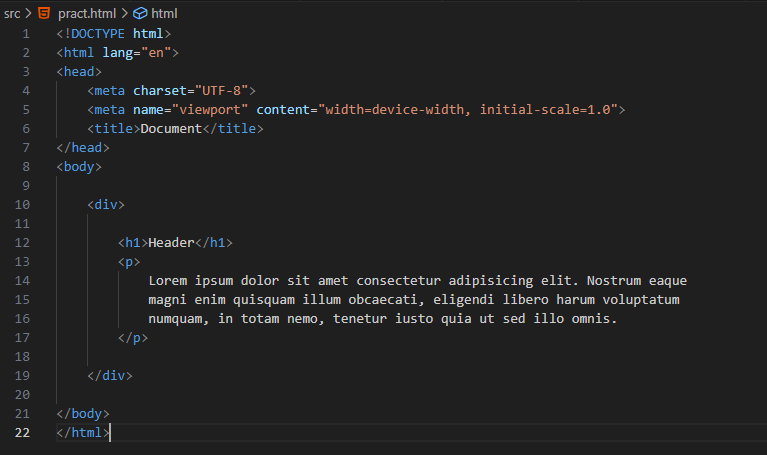
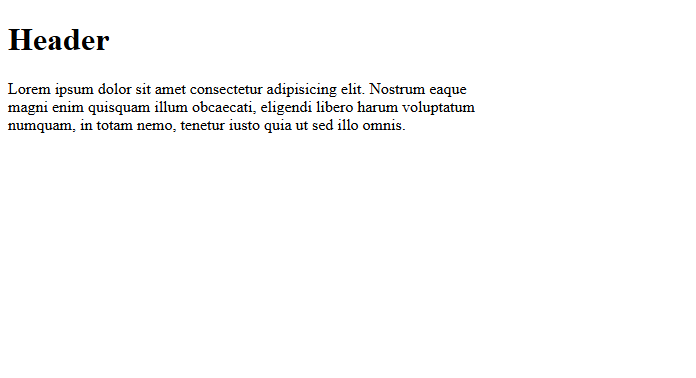
Html Section
Html Section The < section > element is similar to < div > It also define a section in a html document.
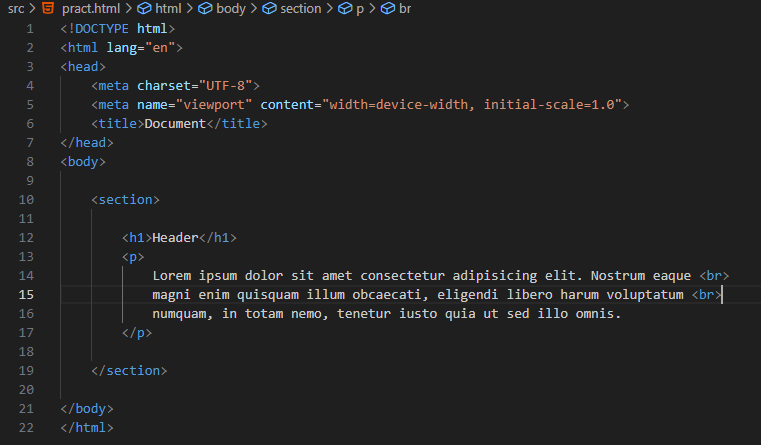
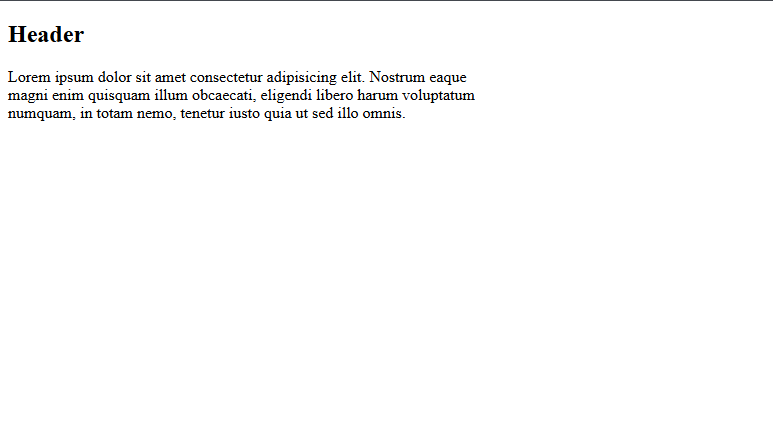
Html Forms
Html Forms The < forms > element is used to create an HTML form for user input. It also used to collect user input.This < forms > element contains some elements. This elements are: < label > , < input > , < textarea > , < select > , < button > e.t.c
Label Element
Html Label The < label > tag defines a label for several elements like input element.The < label > element has an attribute which is the for attribute. The for attribute specifies the id of the form element the label goes to.
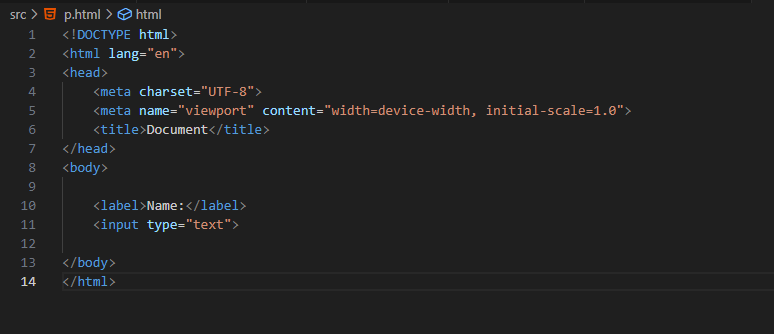
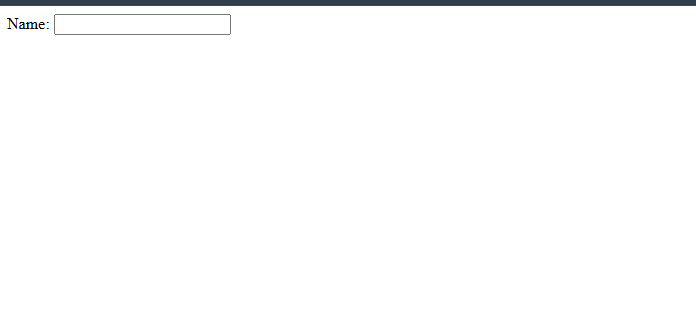
Input Element
Html Input The < input > tag specifies an input field where the user can enter data. And it is the most important form element.
There are many types of input elements which are as follows:
-
< input type ="text" >:
Defines a single-line text field.
-
< input type ="password" >
Defines a password field
-
< input type ="radio" >
Defines a radio button
-
< input type ="checkbox" >
Defines a checkbox
Apart from input element form has some element such as < textarea > , < button >
Textarea The < textarea > tag defines a multi-line text input control. And it is often used in a form, to collect user inputs like comments or reviews.
Button The < button > tag defines a clickable button.
A simple example of form
